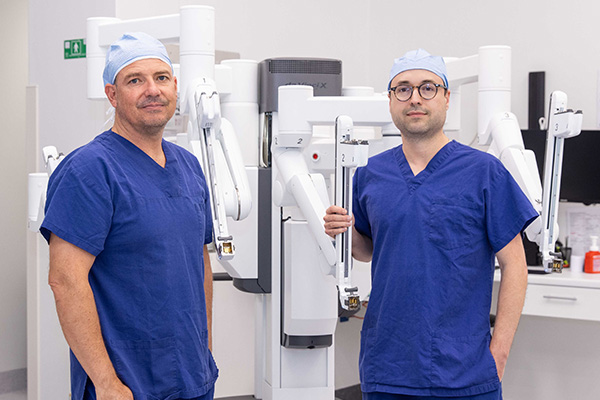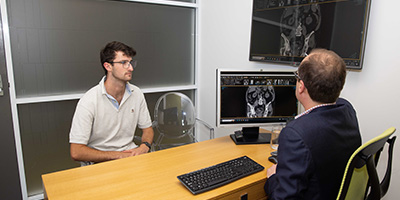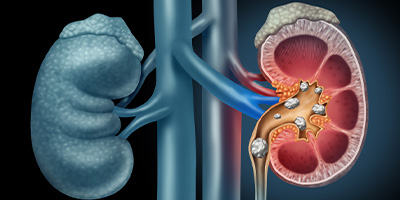Partial Nephrectomy
About The Procedure
Kidney Cancer and Robotic Partial Nephrectomy
Kidney cancer, also known as renal cancer, occurs when abnormal cells grow uncontrollably in one or both kidneys and is among the top ten most common cancers in both men and women. While the exact cause of kidney cancer is often unclear, certain risk factors such as smoking, obesity, high blood pressure, and family history of the disease may increase your likelihood of developing it.
The diagnosis of kidney cancer is often discovered incidentally, meaning it’s found during tests or procedures for unrelated conditions. This is particularly true for small tumours that may not cause noticeable symptoms until they grow larger or spread to other parts of the body. Incidental findings of kidney cancer commonly occur during imaging studies such as ultrasounds, CT scans, or MRIs performed for reasons unrelated to kidney cancer, such as abdominal pain, urinary tract issues, or other medical concerns.
The incidental detection of kidney cancer has increased with the widespread use of imaging technologies for various medical conditions. While it may initially come as a surprise to patients, incidental discovery allows for early diagnosis and intervention, which can improve treatment outcomes and prognosis.
If diagnosed with kidney cancer, your treatment options will depend on various factors, including the size and stage of the tumour, your overall health, and personal preferences. Treatment options may include surgery to remove the tumour, such as partial or complete (radical) nephrectomy, targeted therapy, immunotherapy or cryotherapy.
Operation
Robotic Partial Nephrectomy is a cutting-edge surgical technique revolutionising the treatment of small kidney cancers. Unlike traditional open surgeries, this minimally invasive approach utilises robotic assistance to precisely remove only the cancerous tissue while sparing healthy kidney tissue. By preserving more kidney function, patients may experience better postoperative outcomes and reduced risk of kidney failure and complications such as chronic kidney disease or even the need for dialysis. This advanced technology allows for smaller incisions, less blood loss, and quicker recovery times, enabling patients to return to their daily lives sooner. With the precision of robotics, surgeons can navigate delicate structures with unparalleled accuracy, offering patients a promising option for treating small kidney cancers with greater confidence and efficiency. However, a Partial Nephrectomy is not always possible and in some cases, we unfortunately need to remove the whole kidney (radical nephrectomy).
Each case needs to be individualised. Small renal masses, for example, can be just surveilled. Other cases may be frozen with the use of Cryotherapy, for example. However, surgery is often the main treatment for localised kidney cancer, although the type of surgery depends on the size and location of the tumour, as well as the extent of the disease.

Our expert team is here to guide you in making the best decision regarding the most suitable treatment for your case. We will provide comprehensive support and information to help you navigate through your options and make an informed choice that aligns with your unique needs and preferences.
For more information about your procedure please read through the information from The British Association of Urological Surgeons (BAUS).
Robotic - Assisted Laparoscopic (Keyhole) Removal Of Part Of The Kidney
Information about your procedure from The British Association of Urological Surgeons (BAUS)
Prostatectomy Process
What's on this page
Other Services






